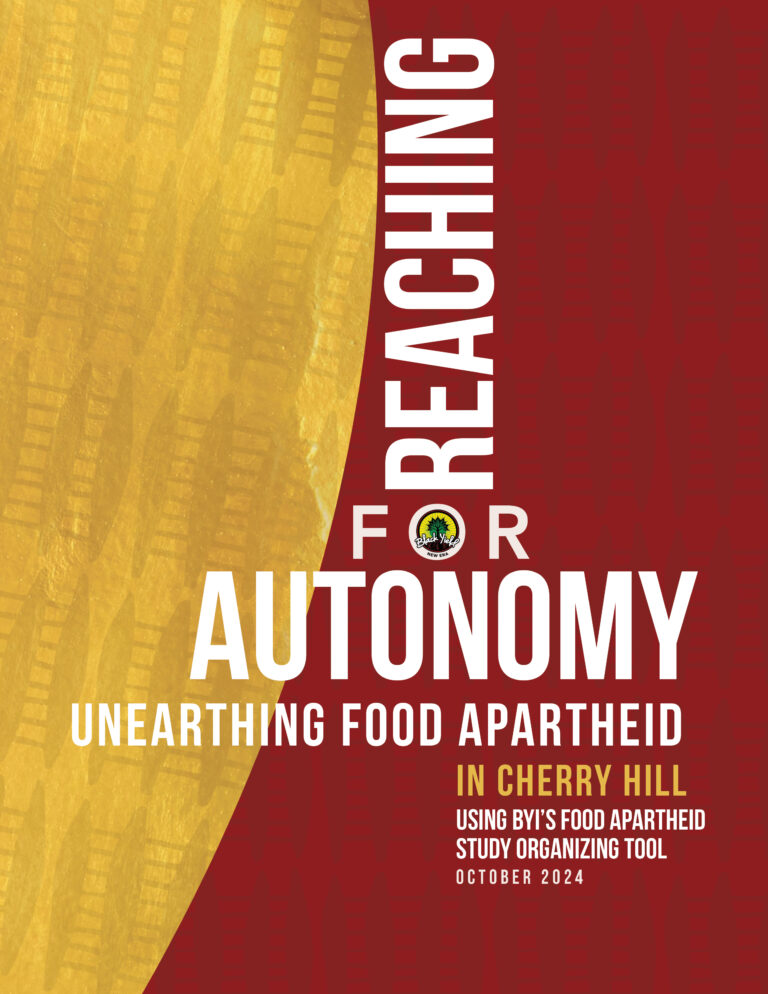Reports
Read Our Full Cherry Hill Food Apartheid Study

Cherry Hill Food Apartheid Study Progress Report
It is up to us to be our own advocates for food justice in our community. For the past several years we have been conducting a research study in the Cherry Hill community to answer two important questions:
The first is how does Food Apartheid show up in Cherry Hill. The second is what assets exist to support Black Land & Food Sovereignty in Cherry Hill. Through varied methodology, we are working to compile the Cherry Hill Food Apartheid Study. This report serves as a precursor to that soon to come piece of literature.
We Got 5 On It! A Report On The First 5 Years of Black Yield Institute
“We Got 5 On It is a five-year look at the impact of Black Yield Institute with a focus on the developmental years of 2015 to 2020.”
- An excerpt from We Got 5 On It
Black Yield Institute has been developed with a clear aim and focus since the beginning of our work in November 2015. November marks the birthday of our institution and in the spirit of celebration we are excited to announce that we are releasing our first multi-year report, We Got 5 On It.
The report serves as a document that attempts to highlight the evolution of our work from 2015 to 2020. However, we also aspire to inspire further organizational development in service to Black Land & Food Sovereignty. The report is a labor of love that motivates us to continue our work for many more years.
Learn about how and why we have been able to build our institution since our inception and learn the spotlights over the past two full years of operations. Enjoy the illustrative storytelling that shares a tale from idea to seed to fulfillment. Many jewels and gems are found within the pages of We Got 5 On It.
We recommend studying this document, not merely read the contents, and we invite people to ask questions. Black Yield Institute has a story to tell and here it is. Keep the Flame!
Check Out Some of Our Other Reports
Community Control for Land (Full Report)
This project was born out of a collective recognition that food and land use policy change in Baltimore is not usually charted through authentic community engagement. Our goal is to reorient our community to engaging in the democratic promise of representation.
Community Control for Land (One-Pager)
This project was born out of a collective recognition that food and land use policy change in Baltimore is not usually charted through authentic community engagement. Our goal is to reorient our community to engaging in the democratic promise of representation.
Cherry Hill Food Co-op Readiness Report
Food co-ops are economic models utilized by members of particular groups to address the social, cultural, and
economic needs expressed by the collective and are centered on the consistent access to relatively healthy
foods.
